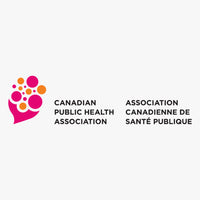Navigating Canada cannabis laws: the driver's manual

Despite people’s perceptions, cannabis and driving do not mix well. Maybe this is something you already know, but do you know the specific federal and provincial laws that pertain to driving under the influence of cannabis? Here’s a simple guide to help you remain informed about Canada cannabis laws.
The reason behind Canada’s driving laws
To address road safety following cannabis legalization, Canadian impaired driving laws have been revised. This is because THC – the psychoactive compound in cannabis – can cause side effects that impact one’s driving abilities.
Due to various factors, THC affects each person differently. The main effects of THC that impact driving abilities include:
- Diminished coordination and motor skills
- Slower reaction time
- Lack of focus and alertness
- Weakened decision-making abilities
- Compromised depth perception
- Short-term memory loss
Cannabis consumers can develop a tolerance for THC and the experience can be different each time. This is why the law has to set a limit for THC that can apply to everyone, similar to alcohol impairment laws.
The protocol at a lawful traffic stop
If there is reasonable suspicion that you are driving under the influence of cannabis (red eyes, abnormal speech, etc), the police can:
- Request an oral fluid sample using ADSE (Approved Drug Screening Equipment).
- Ask you to participate in Standard Field Sobriety Testing (SFST), consisting of various roadside sobriety tests.
According to Canada’s cannabis regulations, if you fail these tests or you are over the 25 ng/mL roadside oral fluid limit (5 ng/mL blood limit), you may be arrested. Further tests will be conducted to assess the specific levels of THC in your body and determine the appropriate fine, if applicable. You will either:
- Undergo a 12-step DRE (Drug Recognition Evaluation), or
- Have blood tests taken at a medical facility or police detachment
Oral fluid screening device and blood testing
The roadside test limit for THC is 25 nanograms (ng) of THC per milliliter (mL) of oral fluid. If you are over this THC limit, then you’ve likely consumed cannabis recently.
THC remains in oral fluid for several hours after consuming cannabis. The roadside test can only indicate recent cannabis use (smoking or vaping) in oral fluid, and show if THC levels in oral fluid are OVER or UNDER the legal roadside limit (25 ng/mL).
Even if you are UNDER the limit, but there is reason to believe that alcohol or drugs are present, the officer can ask you for a blood sample.
Only a blood test can verify and confirm the specific amounts of THC in your system. These tests are done at hospitals or other designated labs that are available to the police. It is the amount of THC in blood that determines the penalty.
The breakdown of penalties*
|
Blood Level |
Penalty |
|
2 ng/mL, but less than 5ng/mL |
Minimum $1,000 fine + Relevant provincial penalties (fines, licence suspension, ignition interlock) |
|
5 ng/mL or more THC |
1st Offence – Minimum $1,000 fine 2nd Offence –30 Days Imprisonment 3rd Offence – 120 Days + Relevant provincial penalties
|
|
2.5 ng/mL or more THC combined with 0.05 BAC (Blood Alcohol Concentration) |
1st Offence – Minimum $1,000 fine 2nd Offence –30 Days Imprisonment 3rd Offence – 120 Days + Relevant provincial penalties**
|
Visit www.DontBeSorry.ca/dui for more details on what happens when you’re pulled over for smoking or vaping cannabis.
When it comes to smoking or vaping
The Ontario Medical Association advises consumers to avoid driving for 6 hours after smoking (or vaping). THC levels present in the body are at their highest 15 minutes after smoking and dissipate over the next 6 hours, but the euphoric effects can last up to 8 hours, depending on the person.
*Note: These cannabis regulations from Canada’s Criminal Code apply to anyone operating a motor vehicle (cars, trucks, snowmobiles, boats etc).
**Are you acquainted with the additional provincial laws that apply to you?
RCU enables the public to make responsible and informed decisions. We provide education about Canada’s cannabis laws as they apply to the workplace, the road, the home, and beyond. Visit Don’t Be Sorry to keep up to date with Canada cannabis laws.












Leave a comment